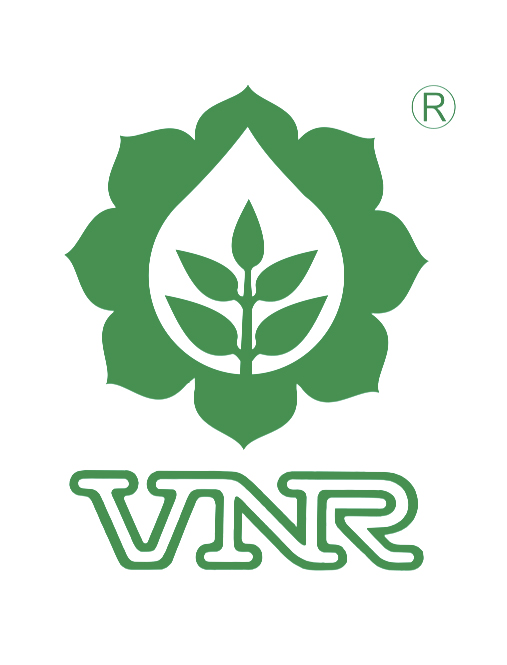Policy for Prevention, Prohibition & Redressal of Sexual Harassment at Workplace
Introduction
The Parliament of India has passed the “Sexual Harassment of Women at Workplace (Prevention, Prohibition, and Redressal) Act,” in the year 2013. This Act provides protection against sexual harassment of women at workplace and for the prevention and redressal of complaints of sexual harassment and for the matters connected therewith or incidental thereto.
- The guidelines explicitly state the following: “It shall be the duty of the employer or other responsible persons in workplaces or other institutions to prevent or deter the commission of acts of sexual harassment and to provide the procedures for the resolutions, settlement, or prosecution of acts, of sexual harassment by taking all steps require.”
- VNR is committed to provide an environment that is free of sexual harassment involving any gender.
- As directed by the act, VNR has constituted a committee called ‘Internal Committee’ to Prevent Sexual Harassment at the workplace, hereby referred as Internal Committee (IC).
Objectives
The objectives of this policy are as follows:
- To develop guidelines against sexual harassment of employees in the Company.
- To evolve a formal mechanism for the prevention and redressal of sexual harassment cases.
- To ensure that the procedures laid by the policy are implemented in letter and spirit.
- To ensure that there is proper reporting of the complaints and their follow-up procedures.
- To uphold the commitment of the Company to provide an environment free of gender based discrimination and to deter any act of sexual harassment.
- To raise awareness on sexual harassment in its various forms.
What constitutes Sexual Harassment?
- Sexual Harassment: Sexual harassment includes any one or more of the following unwelcome acts or behaviour (whether directly or by implication) at the workplace, namely:
- Physical contact and advances; or
- A demand or request for sexual favors; or
- Making sexually coloured remarks; or
- Showing pornography; or
- Any other unwelcome physical, verbal or non-verbal conduct of sexual nature.
Need to realize that sexual attention becomes harassment when it is “unwelcome”.
The following acts shall be considered as incidents of sexual harassment. (Unwelcome acts);
- Sexual advances such as requests for sexual favours, and verbal or physical conduct of a sexual nature are, implicitly or explicitly, made a condition of employment, participation, or evaluation of a person’s engagement in any activity.
- Sexual advances, and verbal, non-verbal and/or physical conduct such as loaded comments, remarks or jokes, letters, phone calls or e-mails, gestures, exhibition of pornography, lurid stares, physical contact, stalking, sounds or display of a derogatory nature.
- Interfering with the work of employee or creating an unfavourable working environment for the employee.
- With work-from-home set-ups, there is an extension of workplace to home. The nature of Sexual harassment over Work-from-home set-ups may include incidences like commenting on appearance over video calls, calling or texting at late hours or expecting video or audio meeting at late hours in virtual set-ups, taking screenshots of females during video calls without their permissions and circulating them on social media, Use of sexist or abusive language in concall /videocall and cyber stalking.
Constitution of the Internal Committee
- The Act mandates companies to form an Internal Committee for redressal of sexual harassment issues.
- The Internal Committee at VNR shall consist of 5-6 people.
- A senior female member from the Company, as the Chairperson.
- A senior male & female member from the Management team.
- One External member (preferably lawyer by profession or from NGO committed to the cause of women or familiar with issues related to sexual harassment).
- Two members from senior leadership team acting as advisors to the committee.
- The term of each member shall be of three years.
- The previous committee members will continue till the new committee is constituted at the end of three years term.
Authority & Duties of the Internal Committee
The Internal Committee is empowered to carry out the mandate of the policy and has statutory power as are vested in a civil court under the Code of Civil Procedure, 1908 when trying a suit in respect of the following matters:
- Summoning and enforcing the attendance of any person (Complainant /Complainee /Witness) and examining him/her on OATH and recording the statements.
- Requiring the discovery and production of valid Documents.
- Any other matter which may be prescribed.
- The duty of the committee is to drive programs for creating awareness with the aim of prevention of any incidences of sexual harassment in the workplace.
- The members must not let personal biases and prejudices come in between while performing their role as members of the committee.
- The members shall recommend the disciplinary action to be taken for the acts of sexual harassment if found guilty.
- The members should device means to communicate the policy to the employees.
- The members of the Committee shall meet at least four times in a year.
- Comply with legal authorities by providing required data from time to time to comply with the law.
Procedure of Complaint
- Any employee or the ‘Complainant’ shall have the right to file a complaint concerning any harassment including sexual harassment against another employee or the ‘Complainee’.
- Any Complainant may file a complaint within a month from the date of incident.
- All complaints will only be accepted in writing with self signature as per the guidelines of the act for further proceedings.
- The identity of the Complainant shall be kept confidential by the committee till the enquiry proceeds further.
- Within a period of 5 working days from the date of such communication, the Chairperson shall convene a meeting to deal with the complaint and make preliminary enquiry/fact finding enquiry to verify the facts of the complaint. An enquiry will be initiated if the complaint is found genuine and is required to investigate.
- A separate Enquiry committee maybe formed for the investigation purpose. The enquiry committee needs to submit a report within 5 working days.
- Either the enquiry can be initiated in a confidential manner before confronting the Complainee or the enquiry may begin by taking written statements or interaction with both the Complainant and Complainee to give an account of the instances highlighted in the complaint to the Internal/Enquiry Committee.
- The Internal/Enquiry committee shall have the right to ask questions which are relevant in the case being discussed, without being gender insensitive or raising inappropriate questions.
- The Internal/Enquiry Committee shall conduct the proceedings in a fair manner and shall provide equal opportunity to the Complainant and Complainee for presenting and defending his/her case.
- The complaint shall then be treated as addressed and closed by the committee.
- The action taken should be recorded and signed by the Complainant and the Complainee.
Disciplinary Action
- The disciplinary action on the Complainee may vary depending upon the extent of harassment caused by the Complainee.
- Enhancement of disciplinary action, by the Committee, could depend on factors such as the nature and extent of injury caused to the Complainant or the impact of the violation of the policy.
- The disciplinary action chosen could be anyone or combination of following actions or any other form not listed below;
- Written apology
- Adverse remarks in the performance assessment
- Stopping of increments/promotion
- Reverting, demotion
- Suspension
- Dismissal
- In case, it is found that the Complainant has given a false allegation or provided misleading documents against the Complainee, the committee may recommend punitive action against such Complainant.
- In case, the allegation cannot be proved against the Complainee, no action shall be taken against the Complainee and the Complainant shall be informed about the same before closing the case.
Members of Internal Committee
- Ms. Hema Chawda; Director (Presiding Officer)
- Mr. Rajkumar Kundu; Lead Supply Chain (Member)
- Ms. Asheen Karuna Benn, Company Secretary (Member)
- Mr. R.N Vyas (External Member)

